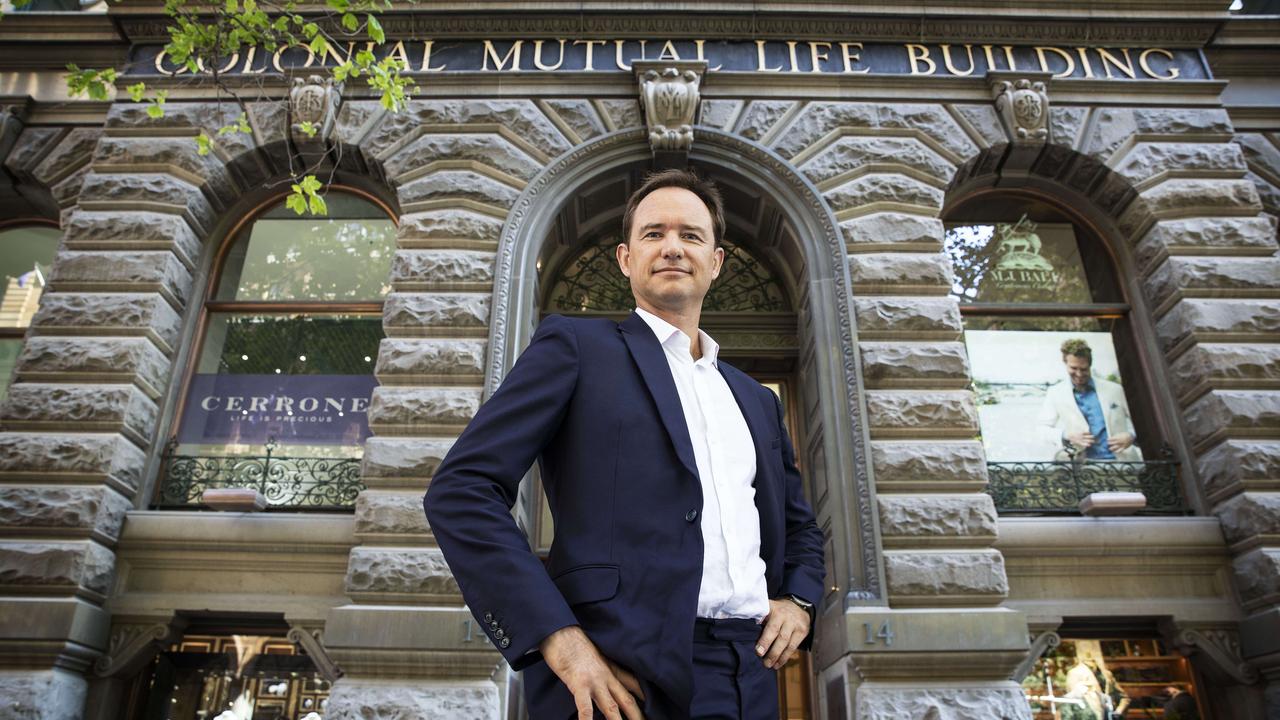Musical chairs in the C-suite
Departing Westpac executives Brad Cooper and George Frazis are believed to be contenders for CEO roles at rival banks
Too often, departing senior executives take refuge in the old furphy of spending more time with their families.
The families involved are just as surprised as everyone else.
So it was with refreshing candour on Tuesday that Westpac executives Brad Cooper and George Frazis said they were leaving the bank to pursue new leadership roles.
With Frazis two years younger than 56-year-old Cooper, time is still on their side even if their timing is a little awry.
Moves by the Commonwealth Bank and National Australia Bank to separate their wealth businesses created two senior positions in financial services, both of which have now been filled.
In July last year, NAB recruited former Perpetual boss Geoff Lloyd to run MLC, while CBA lured ex-Westpac executive and SocietyOne chief executive Jason Yetton to spearhead the rump of its wealth business after the divestment of Colonial First State Global Asset Management for $4.1 billion.
Other opportunities have since emerged, most notably at NAB with the Ken Hayne-induced exits of chairman Ken Henry and chief executive Andrew Thorburn.
Phil Chronican will replace Henry, and it’s understood that search firm Russell Reynolds will report to an Ann Sherry-chaired board selection committee in relation to Thorburn’s replacement. Rival firm Korn Ferry is helping with the board renewal process.
It remains to be seen whether Cooper and Frazis will be serious CEO contenders at NAB.
Thorburn and his predecessor, Cameron Clyne, both ran Bank of New Zealand, which has emerged as a de facto CEO incubator for the group. Coincidentally, Cooper and Frazis are one-time Westpac NZ chiefs.
Despite this, and the claims of internal NAB candidates such as consumer banking boss Mike Baird and business banking chief Anthony Healy, the bank is more likely to break with the past and appoint a candidate with genuine — rather than subsidiary — CEO experience.
The shortlist includes Medibank CEO and former NAB chief financial officer Craig Drummond, as well as Royal Bank of Scotland CEO Ross McEwan who featured prominently in CBA’s last two CEO searches.
McEwan, then head of CBA’s retail bank, was pipped by Ian Narev in 2011. He is also said to have pulled out of last year’s search that culminated in the appointment of Matt Comyn, after indicating he required unanimous CBA board support.
Insiders say McEwan failed to secure the support of at least one director who was mentoring Comyn.
The other position up for grabs is Bank of Queensland CEO, after incumbent Jon Sutton stepped down in December to focus on his health following a heart operation earlier in the year.
Back in 2015, Frazis, who was then running St George Bank for Westpac, came close to snatching the job that ultimately went to Sutton.
Frazis was the leading candidate for the role, but incoming Westpac CEO Brian Hartzer convinced him to stay in Sydney rather than relocate to Brisbane.
Both Cooper and Frazis are capable of taking the next step in their careers.
It’s just a matter of where they end up.
Branches reprieve
There’s been an interruption to normal transmission at NAB, as crisis management gives way to some rare examples of market leadership.
After six weeks of trying to contain the fallout from a boardroom upheaval, interim chief executive and incoming chairman Phil Chronican yesterday took the initiative on NAB’s 316 rural branches, pledging to keep them open until at least January 2021.
NSW, with 101 branches, and Queensland, with 83, are the main beneficiaries.
All up, non-metropolitan outlets employ 1600 people, which represents a commitment to continuity at a time when rural and regional Australia is undergoing significant change.
After being lashed by the Finance Sector Union for large-scale job losses due to ex-chief executive Andrew Thorburn’s transformation program, the FSU welcomed NAB’s move and urged other banks to follow its lead.
NAB is also ahead of the pack in its heartland of small and medium-sized businesses.
In its response to the Hayne royal commission last Friday, the bank said it would extend the protections in the Banking Code of Practice to small businesses with less than $5 million in total borrowings, up from the previously agreed level of $3m.
This was more than just tokenism, as shown by an assessment by the Council of Financial Regulators that the changes to the code, effective from July 1, were already “significant” and still to be gauged.
As a result, and given the recent tightening in credit standards, the council said in a statement yesterday that it supported the current borrowing threshold to define a small business, with an independent review to be undertaken within 18 months of the code’s commencement.
“At that point it would be appropriate to consider whether to increase the limit from $3m to $5m for all banks,” it said.
“This would allow time for sufficient information to be gathered on the effects of the initial changes and the potential effects of the changes in the small business definition recommended by the royal commission.”
The royal commission proposed a change in the definition to any business employing fewer than 100 people where the specific loan applied for — as opposed to total borrowings — is less than $5m.
gluyasr@theaustralian.com.au
Twitter: @Gluyasr


